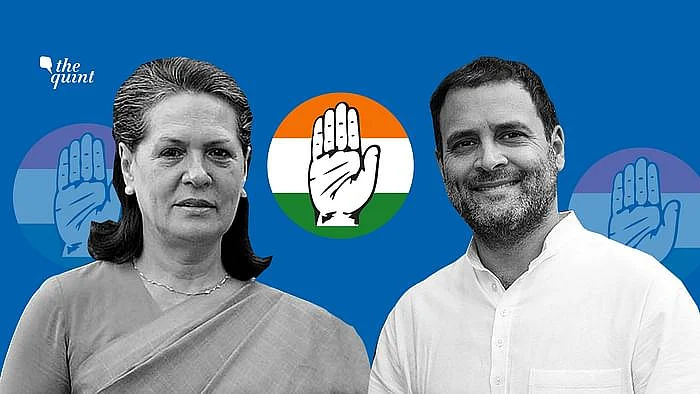"At least it will send the message that Congress is doing something" – this was the common refrain one heard from a number of Congress leaders preparing to leave for the party's 'Chintan Shivir' in Udaipur.
This wasn't said in jest either, at least not by any of the leaders The Quint spoke to in the past three days.
For a party with a 127-year-old history, the Congress meets are historic events. Even in comparatively recent history – Pachmarhi (1998), Shimla (2003), and Jaipur (2013) – were all landmark Congress meets in different ways.
In contrast, most party leaders are viewing the upcoming meet in Udaipur with a sense of realism, without expecting any grand outcomes.
Expectations Lowered Due to Recent Defeats
Unlike the three meetings mentioned above, this is not the huddle of a party in power as it was in 2013 or a dominant Opposition like 1998 and 2003.
In contrast, the party goes into the Chintan Shivir on the heels of Assembly election defeats in Uttar Pradesh, Punjab, Uttarakhand, Manipur, and Goa.
The defeats jolted the Congress for two reasons:
It reflected the Congress' lack of competitiveness in direct contests with the BJP – the defeats in Uttarakhand, Goa and Manipur were a contrast to the state-level resilience shown by the Congress in the 2018 election cycle.
It reflected Congress ceding space to regional parties: the defeat to Aam Aadmi Party in Punjab, the Samajwadi Party's gains at its expense in Uttar Pradesh and the nibbling away of its base by smaller parties in Goa and Manipur.
These defeats have tempered the party's expectations from the Chintan Shivir. In fact, the urgency with which the huddle is being held may not have been there had such an adverse result not taken place.
So what do Congress leaders 'realistically' expect from the Chintan Shivir?
'Desperate Need to Boost Morale'
"The morale in the party had hit rock-bottom after the Assembly election defeat in March. There was despondency at every level. There still is," a Rajya Sabha MP told The Quint.
A party office bearer said that the entire fiasco involving Prashant Kishor further demoralised the rank and file.
"To be honest, the entire Prashant Kishor episode also was harmful. There were legitimate concerns regarding Kishor's proposed organisational changes. But the manner in which it came out, it appeared that the party didn't want to change."Congress office bearer
Both the above leaders said that there is a "desperate need" to boost the morale of the party rank and file. "The Chintan Shivir will be a good step to send a message to the Congress worker that the party understands their concerns, understands the urgency of the situation and is willing to take steps to set things right," said the RS MP.
'Provide a Clear Narrative'
The second outcome that leaders hope from the Udaipur huddle is a clear narrative in the run-up to the 2024 Lok Sabha elections.
This narrative is likely to be reflected in the different resolutions that will be drafted by different committees.
But sources reveal that in addition to these resolutions, the party may try to put forward an overarching slogan or an overarching narrative for the party.
"The resolutions will no doubt lay down the failures of the Modi government and the solutions offered by the Congress. But that won't be enough. The party needs to give a big picture narrative to the people," a party leader, who is part of the political resolution committee, said.
On being asked what this "big picture narrative should be," the leader said, "It needs to be about what Congress is about, what India is about, something that we can unite people around."
One Achievement Before the Meet
There's one thing that the Congress seems to have achieved even before the meet, that is, arriving at some sort of unity within the party.
This took place soon after the Assembly election results with the Congress Working Committee reflecting some degree of reconciliation between the party leadership and the G-23 group.
In fact, two members of the G-23 have been made heads of the committees for the Chintan Shivir. Mukul Wasnik is heading the committee on 'organisation' and Bhupinder Singh Hooda heads the committee on farmers and agriculture.
Ghulam Nabi Azad, a key member of the G-23, is part of the political committee while Anand Sharma is part of the committee on economy. The economy committee itself is headed by P Chidambaram, who many consider part of "extended G-23." In that sense, this effort to accommodate everyone is being seen as very typical of Sonia Gandhi's style of leadership and set the tone for a show of unity at the Chintan Shivir.
